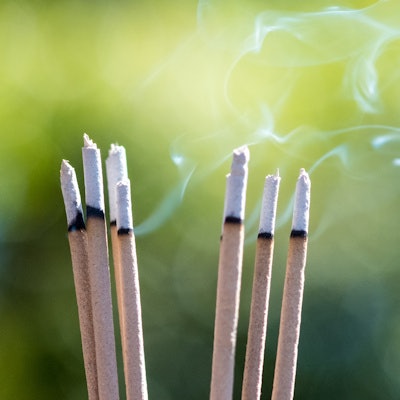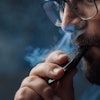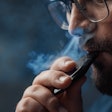
Burning incense is associated with changes to oral bacteria, including those from the Streptococcus family, according to a recent study from an international team of researchers. The findings suggest that even occasional incense use can alter the composition of the oral cavity.
A team of 28 researchers analyzed saliva samples from more than 300 residents of the United Arab Emirates, a country where incense use is common for religious ceremonies and also at home and in shopping malls. They found that even occasional exposure to incense smoke led to significant changes in some types of oral bacteria.
"For the first time, we are showing an association between incense use and changes in microorganism composition that inhabit the oral cavity," lead study author Yvonne Vallès, PhD, from the University of the West Indies in Barbados, stated in a press release. "Although this is a preliminary analysis, it is nonetheless an important finding with potential health implications."
“There seems to be a significant lack of awareness among the public.”
The smoke from burned incense contains some pollutants also found in tobacco, including carbon monoxide and nitric oxide. Since tobacco use can significantly affect oral health, the researchers wondered whether the same was true for incense use.
To find out, they took saliva samples from 303 adults in the United Arab Emirates. The study participants also filled out a questionnaire about their oral health, tobacco use, and frequency of incense burning.
Burning incense, even occasionally, led to significant changes in the oral microbiota, the researchers found. Daily incense users had more diverse oral bacteria than those who used incense less frequently.
In addition, incense use was associated with changes in the population count of various oral bacteria. Notably, those who used incense had lower levels of Streptococcus bacteria, a finding that surprised the researchers.
"One of the most striking results of our study was the observed depletion of the most abundant taxa of the oral microbiota, the Streptococci," the authors wrote (Scientific Reports, July 11, 2019). "If incense use decreases the activity and abundance of salivary proteins, this may compromise the ability of Streptococci to efficiently adhere and colonize oral surfaces and instead, facilitate their agglutination and removal by swallowing."
Notably, the altered bacteria counts in the saliva samples of people who used incense differed from those who used tobacco, despite some similarities between the composition of incense and tobacco smoke. The researchers hypothesized this could be because incense and tobacco affect the oral cavity in different ways.
"Our variance partitioning showed that the effects of incense use and smoking on the oral microbiota are largely independent," they wrote. "This could in part be due to toxicants present in incense use that are absent in tobacco smoke and that might have differential cytotoxic or mutagenic effects on the bacterial community, potentially affecting the oral environment in distinctive ways."
The authors noted that the study had several shortcomings, including that the researchers couldn't track changes to saliva over time. In addition, there weren't many participants who never burned incense, which could affect the results.
Nevertheless, the study findings demonstrated that incense may have a significant effect on the oral microbiome. The researchers hope to continue to investigate this link.
"We are hoping with the new data that we are gathering from the project to test for causation, that it is the exposure to incense smoke causing the changes observed," Vallès stated. "There seems to be a significant lack of awareness among the public. Even more concerning, there are no policies in place to regulate the use of incense, particularly in public spaces."



















